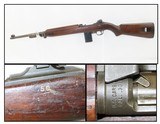 |
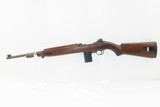 |
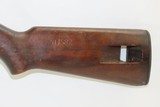 |
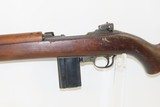 |
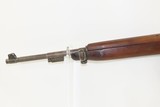 |
 |
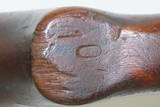 |
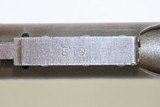 |
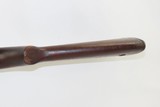 |
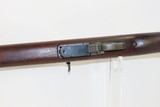 |
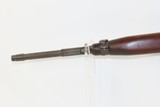 |
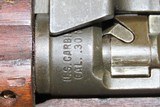 |
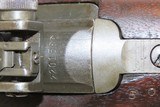 |
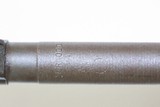 |
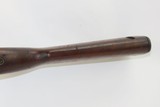 |
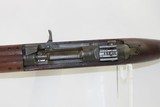 |
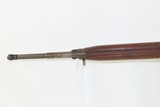 |
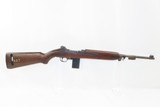 |
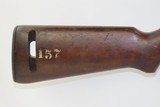 |
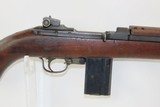 |
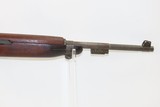 |
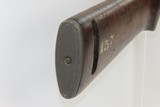 |
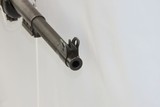 |

World War II US STANDARD PRODUCTS M1 Carbine .30 Light Rifle Korea Vietnam SCARCE CARBINE Equipped with an “UNDERWOOD” Barrel!
Guns International #: 101868143 Seller's Inventory #: 201455
Category: Military Rifles - M1 Carbine - Military Rifles - US
Seller's Information
When emailing or calling sellers direct, please mention that you saw their listing on GunsInternational.com
Seller: AncestryGunsLLC
Company: Ancestry Guns LLC
Member Since: 11/3/16
State: Missouri
Zip: 65203
Country: United States
Phone: (314) 707-7373
International Phone: 314-707-7373
Platinum Seller
Number of Active Listings: 1060
Total Number of Listings: 39154
Seller: FFL Dealer
Return Policy: 3 day inspection and return policy on used guns.
Payment Types Accepted: Credit Card, Certified Check, Money Order
Description:
World War II US STANDARD PRODUCTS M1 Carbine .30 Light Rifle Korea Vietnam
SCARCE CARBINE Equipped with an “UNDERWOOD” Barrel!
Here we present a Standard Products U.S. M1 Carbine Semi-Automatic Rifle, manufactured in 1944 in Port Clinton, Ohio. This .30 caliber semi-automatic rifle was first used by the United States Armed Forces on October 22, 1941. Of the 6,110,730 carbines made of all types built during the war, Standard Products manufactured 247,160, or 4% of the total between 1943 and 1944. Standard Products M1 carbines are one of the scarcest contractor carbines made. This example is equipped with an Underwood barrel. Underwood shipped approximately 10,000 barrels to Standard Products in 1943. Despite having similar name and appearance, the M1 Carbine is not a carbine version of the M1 Garand rifle. They are different firearms and use different ammunition.
Prior to World War II, U.S. Army Ordnance received many reports that the full-size M1 Garand was too heavy and cumbersome for most support troops, such as mortarmen and radiomen to carry. During prewar and early war field exercises, it was found that the M1 Garand impeded these soldiers' mobility, as a slung rifle would frequently catch on brush, bang the helmet and tilt it over the eyes. Many soldiers found the rifle slid off the shoulder unless slung diagonally across the back, where it prevented the wearing of standard field packs and haversacks. Additionally, Germany's use of glider-borne and paratroop forces to launch surprise ‘blitzkrieg’ attacks behind the front lines generated a request for a new compact infantry weapon to equip support troops. This request called for a compact, lightweight defensive weapon with greater range, accuracy and firepower than handguns, while weighing half as much as the Thompson submachine gun or the M1 rifle. The U.S. Army decided that a carbine would adequately fulfill these requirements and specified that the new arm should weigh no more than five pounds and have an effective range of 300 yards. Paratroopers were also added to the list of intended users and a folding-stock version would also be developed.
The M1 carbine was also one of the most cost-effective weapons used by the United States military during World War II. At the beginning of World War II, the average production cost for an M1 carbine was approximately $45, about half the cost of an M1 rifle at approximately $85 and about a fifth of the cost of a Thompson submachine gun at approximately $225. The .30 Caliber carbine ammunition was also far cheaper to produce than the standard .30-06 ammunition; used fewer resources, was smaller, lighter, faster and easier to make. These were major factors in the United States military decision to adopt the M1 carbine, especially when considering the large numbers of weapons and ammunition manufactured and transported by the United States during World War II.
The overall condition is very good. The action is strong all around. The bore is bright. The visible markings are clear and legible. “AI” is marked on the magazine. “OI” can be seen stamped into the sling well, representing S.E. Overton of Inland. The receiver serial number matches the stamps on the left buttstock. The right side of the butt stock is painted with “157”, probably a rack number. The Underwood barrel is dated “2-44”. Here is a great example of WWII history to collect and display!
This firearm is classified as a Curio & Relic.
Barrel is 18 inches.
Caliber: .30 Carbine
Overall condition as seen in photos.
Very Fast. Very Safe. FREE SHIPPING. Will need to be sent to your local FFL or C&R licensee. This firearm is classified as a Curio & Relic.
Guaranteed AUTHENTIC & Includes CERTIFICATE OF AUTHENTICITY.
ancestryguns
$2445
#201455
SOLD
Curio/Relic: Yes